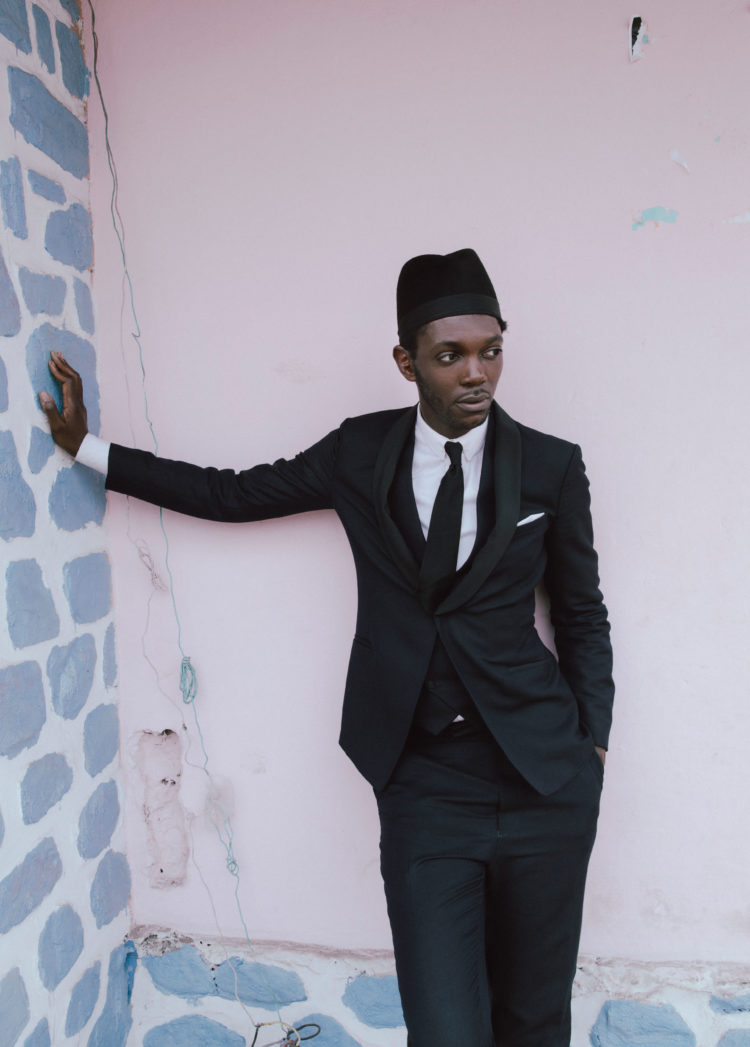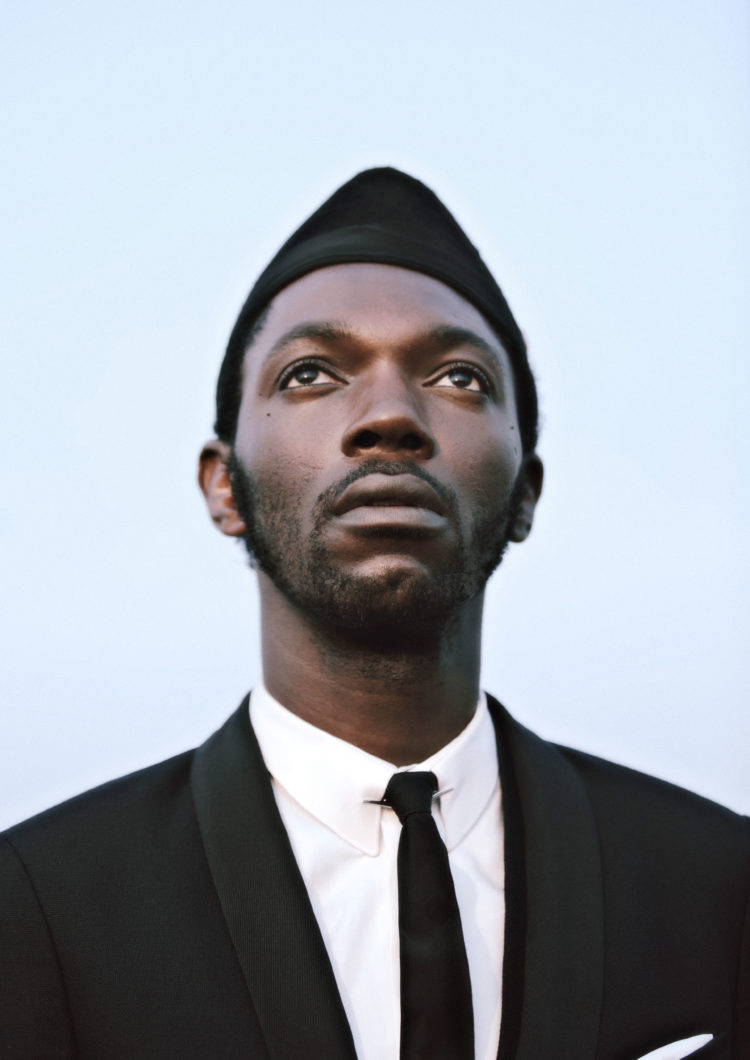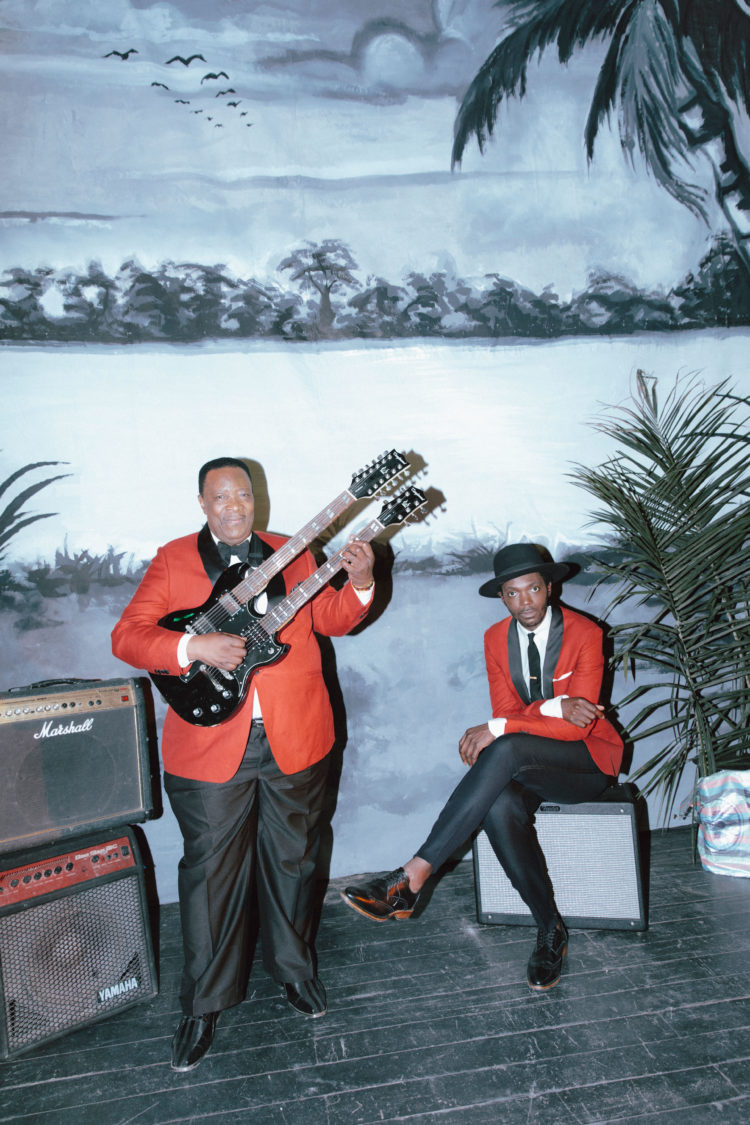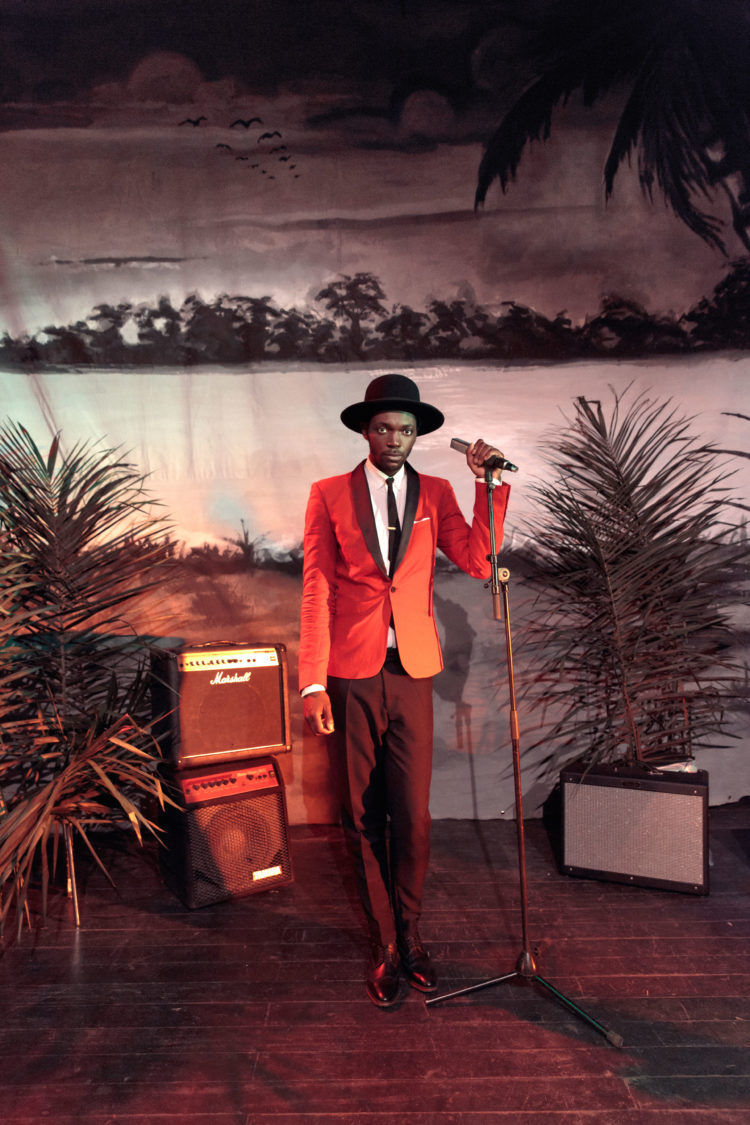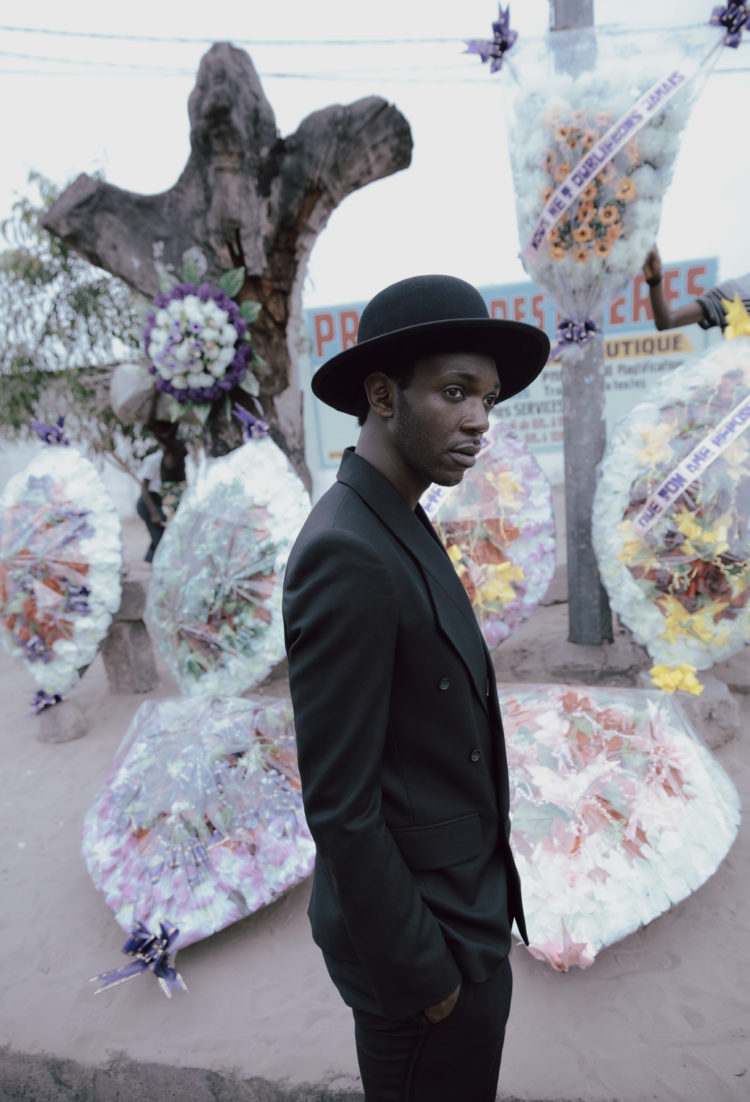The Congolese artist and musician Baloji has just released 64 Bits & Malachite under the label Bella Union. He discusses his album and the influence of Kinshasa on his sound, film and fashion.
Tall and elegantly dressed in a crisp two-piece suit, topped with an open-crown hat, rapper and musician Baloji cuts a fine figure. One of the most innovative and exciting artists to have emerged recently from the African diaspora, his modest demeanour is in stark contrast with his accomplishments.
A former member of Belgium’s eponymous hip-hop band Starflam, Baloji launched his solo career in 2007 with Hotel Impala, followed by Kinshasa Succursale in 2010.
In just a few years, he has crafted a sound of his own. His dazzling blend of rap, electronic sound and African music has earned him the accolade of acclaimed producer Gilles Peterson and a part on Damon Albarn’s Africa Express project. His latest EP 64 Bits & Malachite includes a collaboration with Cape Town artist Petite Noir and Olugbenga Adelekan from Metronomy on the track Capture.
The impulse to launch a solo career came from an utterly personal place. Fruit of a liaison in Lubumbashi (RDC), Baloji was separated from his mother as a young child when he was sent to live with his father in Belgium. ‘I made my first solo album for my mother, to explain what happened in my life during the 25 years after I left. I went back to give her the album and she did not really understand it. Let’s say it didn’t go very well’.
The painful encounter with his mother prompted his rediscovery of Congolese music.
It must be an experience that resonates with the reality of most of the African diaspora – a sense of identity rooted in two continents, an irresistible yet often-doomed impulse to seek and build bridges between wildly different worlds.
The painful encounter with his mother prompted his rediscovery of Congolese music. ‘I had no interest in Congolese music at the time. It was the music that my parents would listen to and, growing up, you don’t really want to listen to your parents’ music!’ He laughs.
Following the release of his first album, Baloji was invited to play live in Kinshasa. ‘It was love at first sight! It’s a chaotic megalopolis where everything goes so fast – you go forward or you die. There is such a wonderful energy. That’s when I really discovered Congolese music’.
Baloji started sampling African musicians, investigating this newly discovered field from the perspective of a rapper. He credits Tabu Ley Rochereau – the legendary pioneer of Congolese Soukous, as one of his most important source of inspiration.
‘It’s jazz really. It’s very elegant. But when you don’t have the background knowledge, you don’t really understand it. In the same way I wouldn’t have understood jazz when I was 18’.
Sampling African music also felt more meaningful to him as an artist. ‘Sampling Tabu Ley Rochereau is more interesting than sampling Curtis Mayfield. In any case, Kanye West will have done it before you! Most importantly, it’s his heritage, not mine’. Intelligent, thoughtful and soft-spoken, Baloji describes himself as ‘Afropean’. ‘I choose not to choose. When you do that, the sky is the limit.’
Baloji now returns to Kinshasa about twice a year. ‘It’s a very powerful place with a vibrant musical scene’. While the city is famed for its unbridled creativity, the potential of the local musical scene is largely untapped. The two main industrial forces – telecommunications and beer – largely dominate the cultural industry.
‘As a result, local artists are forced to produce music that is politically correct and very commercial’. These nonetheless provide platforms for local musicians and, as Baloji notes, this situation does not depart dramatically from the one in the western world. ‘There isn’t a single concert hall in Europe which isn’t associated with a brand. The only difference is that it is less visible than Africa.’
A multi-talented artist, Baloji is also passionate about film and photography. After producing the self-funded masterpiece Karibu Ya Bintou, directed by Belgian directors Spike & Jones with acclaimed cinematographer Nicolas Karakatsanis (The Drop), Baloji made the move to directing. He conceived and directed the striking music video for Capture. Beautifully shot and politically loaded, it follows the journey of performance artists Kongo Astronauts as they search for the statue of Stanley – the explorer who first discovered the Democratic Republic of Congo.
‘After the independence, the statue’s feet were cut off. It used to stand in front of the presidential palace. The statue now lies in an old foundry where they’ve been trying to repair its feet. When I arrived at the foundry, I was blown away – it felt like time had stopped in the 1820s. The astronauts are looking for something that can’t be found.’
‘I wouldn’t say that I’m an activist, but I am concerned by the prospects of the generation to come – this nation has been abandoned to the detriment of 65 million people’. The rich compositions and arrangements used across the album offer a perfect counterpoint to the serious themes that his carefully crafted lyrics explore – as exemplified in the infectious rhythms of Congolese rumba that lay the background for Spoiler.
Baloji just published the music video he directed for the track, which will undoubtedly fill the dance floor. ‘Spoiler is about people who remind you of reality when the party ends, spoiling the good times’, he says, not without a touch of irony.
Baloji was recently signed by the London-based independent label Bella Union run by Simon Raymonde. ‘It’s a great label, with a wonderful, artisan approach to music. They’re more interested in helping you grow as an artist than in releasing chart hits’.
People have a hard time putting me into boxes – is it spoken word, electronic or African music?
This move follows his split from Universal, which took over a year. With a roaster including Fleet Foxes, Emmy the Great or Beach House, and a commitment to nourish and develop authentic relationships with the artists it represents, Bella Union felt like the perfect match. They are re-releasing Baloji’s EP 64 Bits & Malachite on November 4.
Check/Share my self-directed video for SPOILER cause it's for the Culture :https://t.co/QWTjexullC pic.twitter.com/8VQKkSzSrb
— BALOJI (@BALOJI) October 24, 2016
‘People have a hard time putting me into boxes – is it spoken word, electronic or African music? I direct films and use fashion a lot too, and some might wonder whether you can make substantial music AND play with fashion… Freedom is the only thing that matters to me now.’
Baloji is already finalising his next album, and working on the short film that will accompany the project. ‘I’m not taking the easy road, I’m going for long tracks with multi-layered atmospheres and episodic structures, as well as a lot of choral music and a triptych across the album!’ He laughs again. This is what freedom sounds like.

